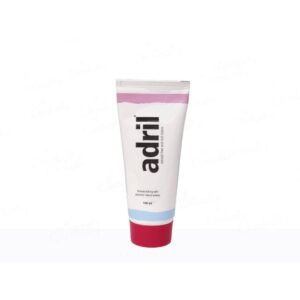ALLANTION + CITRIC ACID + GLYCERIN + PROPYLENE
Allantion: Allantoin is a medication that is widely used in various skincare and dermatological products. It is a natural compound that is found in high concentrations in the urine of mammals and acts as a natural healing agent.
The primary use of allantoin is to promote the healing of wounds and skin ulcers. It has moisturizing, soothing, and anti-irritating properties, making it effective in treating various skin conditions. It can also help to improve the overall texture and appearance of the skin.
The exact mechanism of action of allantoin is not fully understood, but it is believed to work by increasing the water content in the skin, promoting the shedding of dead skin cells, and stimulating the growth of new cells. It also has anti-inflammatory properties that can help reduce redness and swelling in the skin.
Allantoin is generally available in topical formulations, including creams, lotions, and ointments. The appropriate dose and frequency of application depend on the specific product being used. It is important to follow the instructions provided by the manufacturer or consult with a healthcare professional.
Allantoin is considered safe for topical use and is generally well-tolerated. However, like any medication, it can cause side effects in some individuals. Common side effects may include skin irritation, itching, and redness at the application site. These side effects are usually mild and transient.
In rare cases, some individuals may experience an allergic reaction to allantoin. Signs of an allergic reaction may include rash, hives, swelling, severe itching, or difficulty breathing. If any of these symptoms occur, it is important to discontinue use and seek immediate medical attention.
Overall, allantoin is a safe and effective medication for promoting wound healing and improving various skin conditions. However, it is always recommended to consult with a healthcare professional before using any new medication, especially if you have any underlying medical conditions or are taking other medications.
Citric Acid: Citric acid is a naturally occurring substance commonly found in citrus fruits. It is also available as a medication in the form of tablets, syrup, or solution. While citric acid has various uses, including as a flavoring agent in food and beverages, its medicinal use is primarily as an urinary alkalinizing agent.
Citric acid works by increasing the pH of urine, making it less acidic. This can be helpful in preventing the formation of certain types of kidney stones, as they tend to form in acidic urine. By raising the pH, citric acid helps in maintaining a more alkaline environment in the urinary tract, which reduces the risk of stone formation.
The recommended dose of citric acid for urinary alkalinization varies depending on the formulation but typically ranges from 2 to 15 grams per day. The dose and duration of treatment should be determined by a healthcare professional based on the individual’s condition.
Common side effects of citric acid include gastrointestinal disturbances such as nausea, vomiting, abdominal pain, and diarrhea. In rare cases, it may cause allergic reactions, including rash, itching, or swelling. It is important to note that high doses or long-term use of citric acid may lead to metabolic disturbances, such as electrolyte imbalance or metabolic alkalosis.
As with any medication, it is essential to consult a healthcare professional before using citric acid to ensure it is appropriate for your specific condition and to discuss the potential benefits and risks.
Glycerin: Drug Name: Glycerin
Use: Glycerin is a medication primarily used as a laxative. It is used to treat constipation by softening the stool and relieving bowel movements. It is also sometimes used as a moisturizing agent in certain skin care products.
Mechanism of Action: Glycerin works by drawing water into the intestines, resulting in softer and easier-to-pass stools. It is an osmotic laxative, meaning it increases the water content in the intestines, stimulating bowel movements.
Dose: Glycerin is available as a rectal suppository or an oral liquid. The recommended dose for adults and children over 12 years old is typically 1 to 2 suppositories (a total of 1.5 to 2 grams) inserted into the rectum, or 1 to 2 tablespoons (15 to 30 ml) of oral liquid. For children under 12 years old, the dosage should be determined by a healthcare professional.
Side Effects: Common side effects of glycerin may include rectal irritation, mild abdominal discomfort or cramping, and bloating. These side effects are generally mild and go away on their own. However, if they persist or worsen, it is advised to contact a healthcare professional. In rare cases, glycerin may cause allergic reactions, characterized by rash, itching, swelling, severe dizziness, or difficulty breathing. Immediate medical attention should be sought if these symptoms occur.
It is important to note that glycerin should not be used for an extended period of time without consulting a healthcare professional. Prolonged use or misuse of glycerin laxatives may lead to electrolyte imbalances and dependence, which can worsen constipation.
Propylene: I’m sorry, but I couldn’t find any information on a drug called Propylene. It’s possible that you may have misspelled the name or it could be a lesser-known or alternative name for a medication. Could you please provide more details or double-check the spelling?

